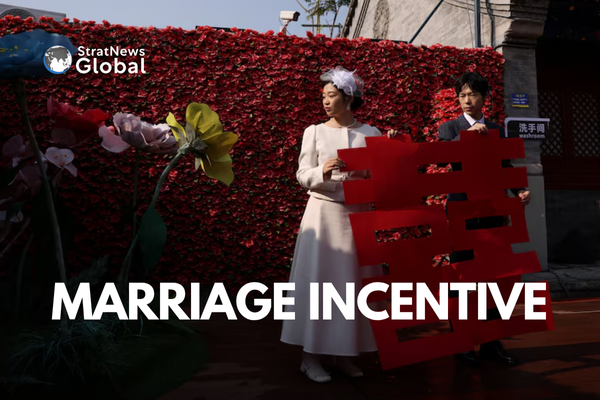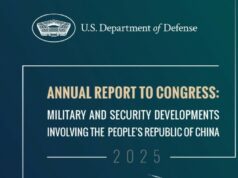The eastern Chinese city of Ningbo has announced a new initiative to promote marriage and family life by offering financial incentives to newlyweds. Couples who register their marriage between October 28 and December 31 will receive marriage consumption vouchers worth a total of 1,000 yuan (about $141). The scheme aims to encourage young people to wed and start families amid China’s declining marriage and birth rates.
According to Ningbo’s civil affairs department, the vouchers will be distributed through an official WeChat platform. Each eligible couple will receive eight vouchers that can be used for services linked to weddings, such as photography, ceremonies, hotel stays, and retail purchases. The department noted that the vouchers are limited in quantity and will be distributed on a first-come, first-served basis.
A Response to Falling Marriage Rates
China has seen a sharp decline in marriages in recent years. Official data shows that only 6.1 million couples registered their marriages last year, compared to 7.68 million the year before—a drop of nearly one-fifth, marking the biggest decline on record. Experts attribute the trend to the rising costs of housing, childcare, and education, as well as changing social attitudes among younger generations.
The fall in marriage rates is a growing concern for Chinese authorities, as it directly affects the country’s already declining birth rate and ageing population. China, with a population of 1.4 billion, is ageing rapidly and faces long-term demographic challenges that could hinder economic growth.
Broader Measures to Tackle Population Decline
Ningbo is not alone in adopting incentives. Other cities in eastern China, including Hangzhou and Pinghu, have also introduced similar cash voucher schemes to promote marriage before the end of the year. These efforts form part of a broader national strategy to address the population crisis.
Last year, authorities urged universities to include “love education” in their curriculum to promote positive attitudes toward marriage, family life, and parenthood. The central government also instructed local administrations to allocate more resources to encourage marriages and childbirth “at the right age,” while fostering respect for family values.
As Chinese cities experiment with various incentives, the effectiveness of such financial measures remains to be seen. However, the move reflects Beijing’s growing urgency to tackle the social and economic challenges linked to its ageing society.
(with inputs from Reuters)





